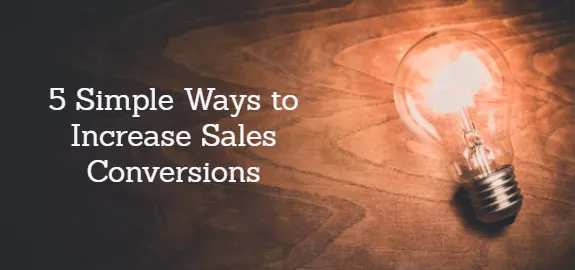Simply put, conversion is your bread and butter. You probably knew this going into the insurance business, but you may or may not have known how much went into baking your own bread and churning your own butter, metaphorically speaking. Insurance sales of any stripe can be a challenging career simply because of how much you have to know as you start making those calls and building those connections, leading to that sale. These insurance sales tips are meant to provide focuses to consider and a means towards hitting those goals:
Strengthen your value proposition
In a highly competitive market such as insurance sales, it is crucial to be able to identify and articulate what it is that makes you stand out beyond the numbers of competitors you have wanting the same business. How you differentiate yourself quality-wise can make all the difference in the world. List what values you excel in, and find the one that you feel the most passion for. Not to disregard the others, but focus on how that one value empowers your conversion process then define it. Having a value proposition isn’t worth much if you can’t articulate it well. You’ve heard of the elevator pitch? Create a floor pitch, as in something that you can communicate between the third and fourth floor on an elevator ride. Refine it down to ten words, and make each word count.
Avoid Business Talk
Insurance terminology is great for succinct conversation with others in the field but for the layman who is already probably a little bit intimidated by the mere prospect of getting a policy, it can add a whole new level of nervousness, and that can create barriers that don’t need to be there. Overuse of business terminology can give the impression that you’re hiding something. This can be a hard situation to rectify, so you’re better off taking steps to avoid it from the get-go. Read your prospect the best you can with the goal of avoiding over-simplification and over-complication as you go into the policy details with them. Explain the concept you want to convey in relation to the prospect’s policy, then connect the business term if you feel it will streamline the conversation later on. This approach will show your concern for the prospect’s understanding of the policy details and build greater trust. Speaking of trust…
Accessibility Leads to Trust Leads to Conversion
Especially in this age where immediate gratification can rule people’s actions, you want to make sure that the channels of communication between you and the prospect are clear and stay clear. Make sure your phone number and email address are prominent and accessible in any communications you have with the prospect. If you’re sending an email, adding in your website url into the mix isn’t a bad idea either. In regards to website accessibility, your information should be easy to get to and easy to use once they’re there. Communication barriers are to be isolated and eliminated as quickly as possible. If you’re having email difficulties, phone your current prospects immediately to let them know of the situation along with alternative means of contact while you deal with the problem.
And, as always, respond quickly to any and all communication. A delay for the prospect could just be an inconvenience that sends them looking for another agent, for you it can be a big hit to your quota and an opportunity lost.
Streamline the Process for your Prospects
Simply put, at the conclusion of every part of the process towards getting the sale, let the prospect know what the next step is. If you’re sending them a form, let them know it’s coming and how to complete it. If they need more information send them precisely what they need or direct them to your website, along with a follow-up time. A definite call-to-action at each step makes what could be considered a complicated process infinitely easier for them, and they’ll remember that.
Follow Up
You got the sale! Is this the end of the process? Of course not, you’ve built a solid relationship that can only grow more beneficial for both you and the client over time if you tend to it right. After you’ve gotten the client signed on, check in at one, three, and six months afterwards to see if they have any questions about their policy. This keeps you at the forefront of their minds for their own future insurance needs and as a reference for their friends and family.
Also, update that holiday card list! A kind word during the holiday season lets them know how much you appreciate them, and further keeps you at the forefront. Also, it doesn’t hurt that people buy insurance for people as gifts.
This isn’t the first time QuoteWizard has touched on the conversion topic to bring you ideas, and it probably won’t be the last. We love having you as part of the family, and we want to see you succeed in your insurance sales career as much as you do.


© QuoteWizard
157 Yesler Way, Ste 400
Seattle, Wa 98104
QuoteWizard is a
LendingTree company.